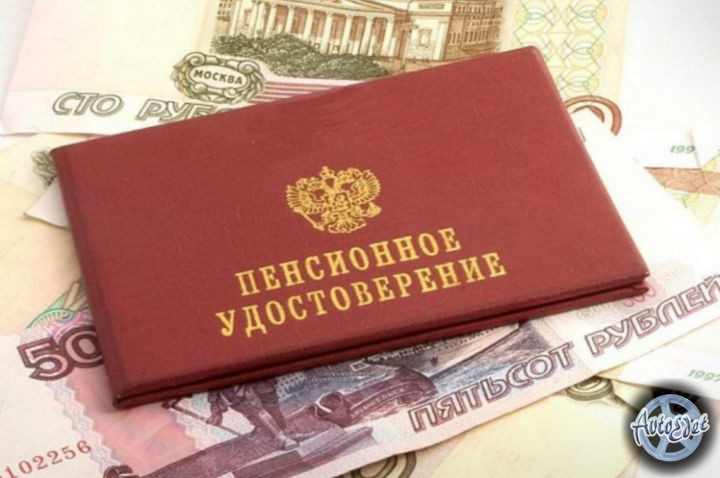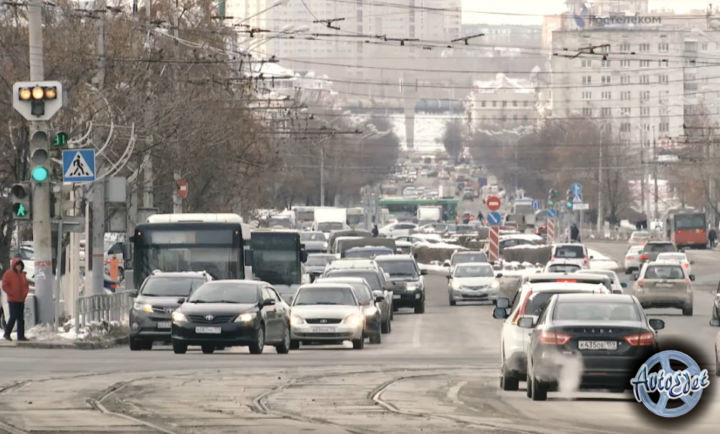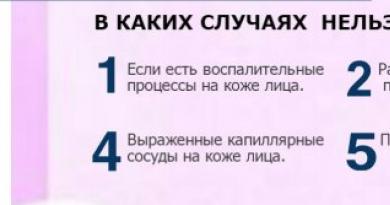Tax benefits for large families are financial assistance state, which is paid monthly to parents with many children. This fact is confirmed by Art. 218 of the Tax Code of the Russian Federation, which also states that the income of each parent will not be subject to a tax deduction, starting from the first month of the baby’s life, after whose birth the family acquires the status of a large family.
In order for this law to come into force for a specific individual, the person must have income taxed at a 13% rate, most often this is the salary of each spouse. Monthly tax breaks apply to:
- married parents;
- guardians and trustees;
- adoptive parents and foster parents- for both spouses.
That is, people who are responsible for the financial support of their children have the right to take advantage of such benefits.
What amount is due?
There are rules according to which parents are given a different amount each month for each child in succession.
- 1,400 rubles for the first child, exactly the same amount for the second child;
- 3,000 rubles for the third and all other children.
There are exceptions to every rule; the law of the Russian Federation also has its own adjustments. If the child is a minor and is a disabled person of any group, and also if his age is less than 24 years old, and he is a full-time student at a higher educational institution and at the same time has a disability of the first or second group, then the parents are entitled to 3,000 rubles monthly, regardless of whether in what order this child was born.
Nuances when calculating tax deductions
When calculating the amount of benefits, the total number of children in a large family is taken into account. If the child’s age is above 18 years and he does not have a disability group, then the first child automatically begins to be considered the oldest, but who has not yet turned 18. Let’s imagine that a person has three children: two daughters, 14 and 27 years old, and a son, 12 years old. In this case, the amount of his benefit will be equal to 4,400 rubles. (1,400 rubles for a minor daughter plus 3,000 rubles for a 12-year-old son). All these details are indicated in the Letter of the Federal Tax Service of Russia dated January 23, 2012 No. ED-4-3/781.
More information about benefits for disabled children
Regardless of the child’s disability status, if he has been assigned some degree of disability, then the parents have the right to receive 3,000 rubles for him every month. This is a regular tax deduction, that is, no additional amount is provided for it as for the first or, say, second child. This is stated in an additional clause of the law, which, however, has been repeatedly challenged. The thing is that from the point of view of equality this is a rather gross violation, because not all situations are typical.
Suppose a couple has three children. Moreover, the first of them is disabled. In this case, the family will receive 7,400 rubles in tax benefits every month (3,000 rubles for the first and third children, plus 1,000 rubles for the second). And now a similar situation, but with a different scenario: a third child was born with a disability. In this case, the amount of the monthly tax deduction will be 5,800 rubles (1,400 rubles for the first and second, plus 3,000 rubles for the third). In fact, the child's disability in this situation does not in any way affect the amount of tax benefits.
In order to somehow achieve equality, it is possible to literally interpret Art. 218 of the Tax Code of the Russian Federation, based on which, at the birth of the only disabled child in the family, the deduction for him should be calculated as follows: 1,400 as for a child from a large family plus 3,000 as for a disabled person. But in certain situations, this clause of the law only increases inequality and can only lead to a legal dispute. If you look at the essence, then each situation must be considered separately.
Who is entitled to benefits (exceptional cases)
Benefits for parents with many children apply directly to the child’s parents, adoptive parents, and guardians. It should be noted that benefits will be issued to you only after submitting a special application for a tax deduction. The state itself does not give anyone sudden surprises, so you need to seek financial assistance on your own.
Important points when receiving tax benefits for large families:
- benefits are given to both parents;
- the list of those who receive a deduction also includes divorced spouses who pay alimony or provide financial support for children in other official ways;
- If one of the adoptive parents gives up their share of the tax credit, the other can receive double the benefit.
The tax deduction is available only to families with an income not exceeding the average, which means that benefits are provided until the amount of income of one of the parents, starting from the beginning of receiving the deduction, reaches 280,000 rubles. From the first month after the parent’s income exceeds this amount, no benefits are provided.
When does the tax base decrease?
The tax deduction begins to be provided from a specific moment, more precisely a month. So, a decrease in the tax base occurs in the following cases:
- starting from the month of birth of the third child;
- from the beginning of the month in which documents on the adoption of a child or several children were officially signed;
- from the moment of signing the agreement on the transfer of the child to another family;
- until the end of the eldest child’s education, if the parents have fewer than three children left, benefits stop from the month in which the child graduates from the educational institution if he studied full-time; in case of correspondence education, benefits stop coming from the first month of study (with the exception of children with disabilities );
- benefits also stop accruing from the moment of termination of the agreement on transferring the child into someone else's guardianship;
- The tax deduction is suspended in the event of the death of one of the children.
Parents will be provided with benefits for the entire period of their child’s education, including academic leave.
Working with documentation
Benefits for parents with many children are provided by one of the tax agents, who is obliged to pay income. This occurs only after the taxpayer has submitted a written application and proper documentation of income, thanks to which the decision to provide the person with benefits will be confirmed. If a person has problems with tax documentation - debts, for example, then a tax deduction will not be provided.
If the taxpayer changes his place of work, then tax deductions are accrued in accordance with the new job starting from the first month of his employment. The amount of income is confirmed by a corresponding certificate, which the taxpayer must present to the tax service.
What documents are needed
Without an income certificate, you definitely will not receive a tax deduction. But there is still a whole list of papers that need to be collected in order for your application for a tax deduction to be approved:
- the child's birth certificate (or appropriate documentation confirming adoption or guardianship);
- marriage registration certificate;
- in case of disability of a child, there must also be documents confirming this, as well as clarifying which specific disability group the child belongs to;
- a certificate from a higher educational institution, if the child has already reached the age of majority;
- if the parents are divorced and one of them pays child support, there must be an officially certified certificate confirming this;
- Also, in the event of a divorce, there must be a statement from the parent who does not live with the children, stating that he also financially provides for the children (this is for those situations where there is no officially provided alimony).
Reduced tax deduction amount for no reason
There are cases when during the tax period parents receive an insufficient amount of tax deduction or do not receive it at all. In such situations, after the end of this period, it is necessary, based on the tax return and documentation, which refers to the right to the full amount of the deduction, to contact the tax service. However, it is not necessary to wait until the end of tax payments; if you notice that the accrued amount is lower than what is due, contact the relevant authorities now.
In order to receive the missing amount of money, you must submit the following documents:
- an application form 3-NDFL is a declaration of income for the year in which you did not receive a sufficient amount of tax benefits or were left without them at all;
- copies of documents confirming the right to benefits;
- copies of passport and taxpayer identification code;
- a statement that you want to receive unpaid money to your bank card;
- certificate form 2-NDFL - this is another certificate of annual income, which requires you to indicate almost the same data as in 3-NDFL.
According to the law of the Russian Federation, your documents and applications must be checked within three months after they are submitted; a month after the end of this check, money will be credited to your account. The need for desk verification of documents by the tax service is indicated in paragraph 2 of Art. 78 Tax Code of the Russian Federation.
Changes to the Russian law on increasing tax deductions
In 2013 to the Tax Code Russian Federation changes were made, as indicated in the law “On Amendments to Article 218 of Part Two of the Tax Code of the Russian Federation.” This law states the following: the standard amount of tax benefits that are provided to individuals who provide financial support for children, as well as to persons who have adopted a child, guardians and trustees with many children, must be increased.
From now on, the amount of benefits for parents with many children is:
- for the first child it remained the same - 1,400 rubles;
- 2,000 rubles are provided for the second child;
- All parents receive 4,000 rubles for their third and each subsequent child;
- Parents of children with any degree of disability are now provided with a tax deduction in the amount of 12,000 rubles monthly, regardless of the birth order of the child.
In addition, the possible amount of income of the child’s parents has also increased, after which the benefits stop coming, starting from the moment the law comes into force, this is from 280,000 to 350,000 rubles.
Fringe benefits
In addition to the basic amount of benefits, parents with many children may be provided with additional funds. For example, in the case of purchasing a new home. The repeated provision of a tax deduction is stated in paragraph. 2 clause 1. art. 220 of the Tax Code of the Russian Federation, which states that the taxpayer has the right to count on property tax benefits in the amount of expenses for the construction or purchase of a new apartment or house in Russia.
The law also applies to the purchase of one or more rooms, a plot of land, and even to the repayment of a cash loan, if it was issued in a Russian bank and has already been spent on the purchase of housing, which must be confirmed by relevant documents. All this requires collecting a fairly large amount of various documentation, which is best done before you start buying a house or land. However, not everything is so simple.
Impossibility of additional benefits
However, in paragraph 27 pp. 2 p. 1 art. 220 of the Tax Code of the Russian Federation states that repeated tax benefits cannot be provided to parents with many children. The authorities explain this by saying that eliminating taxes is a significant benefit. What is the essence of providing additional finance when purchasing a new home?
The fact is that in this way the state helps individuals increase the comfort of life for the whole family, and also contributes to the development of the city’s structure when it comes to the construction of new houses. But if large families additional tax breaks will be provided, this will sooner or later create a hole in the budget of the Russian Federation, at least this is what the authorities assure us.
It all comes down to the fact that large families are sufficiently supported by the state by being exempt from taxes. This applies to all financially vulnerable segments of the population. Also, taxes should not be levied on individuals who are considered low-income - they are provided with material assistance, which is deducted from the federal budget of the Russian Federation, the budget of the city or village where the individual lives, as well as from extra-budgetary funds that conduct various programs to provide financial assistance to the socially vulnerable to the population.
Transport tax for large families
The law of the Russian Federation does not contain clauses on providing benefits or exemption from taxes for members of large families during the period of repayment of a loan for a house taken with a mortgage, although this would significantly improve the financial situation of hundreds of families in the country.
In March 2013, the Russian State Duma rejected a bill that would not have taxed vehicles owned by a large family.
Tax benefits are provided differently in different regions of the Russian Federation. In some regions of Russia, there are separate tax deductions for large families for transport and land plots.
The city council has the right to modify the main points of the law, increasing the amount of tax breaks. Such tax deductions are valid in many municipalities, information from the letter of the Ministry of Finance of the Russian Federation dated December 26, 2013 No. 03-05-06-01/57564.
Transport tax for large families in the Moscow region
Speaking of the peculiarities of taxation in different regions of Russia. Art. 26.8 of the Law of the Moscow Region of November 4, 2004 “On preferential taxation in the Moscow Region” - the transport tax for large families in the Moscow Region was abolished in 2016, provided that the engine power does not exceed 250 horsepower. In this case, the benefit applies only to one vehicle in the family: a car, tractor, motorcycle, scooter or bus.
Transportation benefits can be obtained in the first month after the birth, adoption of a child, or signing of guardianship documents.
The explanatory note to the bill, with reference to data from the Ministry of Labor as of October 1, 2017, states that the total number of large families was about 1 million 615 thousand. Of these, 1 million 470 thousand are registered with social protection authorities. Thus, more than 90% of large families are low-income. Deputy Vadim Dengin recalled that back in 2015, Russian President Vladimir Putin, addressing the Federal Assembly, especially emphasized that“For three years in a row, Russia has experienced natural population growth”.
Do not pay for travel
For example, in Bashkortostan, Penza region, Mordovia, Astrakhan region and Tatarstan. “The problem of paying transport tax is especially pressing for large families, since it is quite problematic for them to use only public transport. The total amount of expenses for these needs is several times higher than in a small family,” says David Kapianidze, head of the tax practice at BMS Law Firm. “The tax benefit will help many people buy a car, since the cost of it in the family budget will be lower.”President of the Association of Large Families of the Kaliningrad Region Elena Urban confirms: “Without a car, it is simply impossible to transport all the children to schools, kindergartens, clubs and sections, especially if the mother works.
The State Duma proposed abolishing the transport tax for large families
For example, in Moscow, for a passenger car with a capacity of up to 150 horsepower, which will be owned for 12 months of 2017, you will have to pay 5,215 rubles. Earlier in 2017, the Federation Council proposed exempting motorcyclists from transport tax in exchange for lifetime consent to organ transplantation after death.However, many bikers did not support the initiative. In addition, in March, the St. Petersburg Economic Policy Committee proposed abolishing the transport tax for buyers of domestic cars.
These are: individuals who received or suffered radiation sickness or became disabled as a result of tests, exercises and other work related to any types of nuclear installations, including nuclear weapons and space technology; one of the guardians of a disabled person since childhood. According to the St. Petersburg Law “On Transport Tax” ", citizens entitled to benefits under transport tax due to disability are divided into three categories.
Benefits and payments for large families in Moscow 2017
per month are set for families with three or four children, 1044 rubles. - with a large number of children to reimburse expenses for utility bills and housing. 3. Benefit in the amount of 2500 rubles.per month is paid for each child aged 1.5 to 3 years and 1,500 rubles. for each child of a different age (up to 18 years), but only when the family income does not exceed the subsistence level for one person.
Transport tax Moscow 2017 benefits for families with many children
Note 1.Transport tax is paid by those persons to whom the vehicle is registered. This is clearly indicated in Article 375 “Taxpayers” of the Tax Code of the Russian Federation. Whether they own the vehicle or not is irrelevant.
Even if you sold (donated, lost, etc.) a car, but it remained registered in your name, then you will have to pay transport tax until it is deregistered with the traffic police. That is why car buyers are in no hurry to re-register them.
Benefits for large families
If this is used from funds maternity capital, finances are issued in two parts. The first is for the construction of the building frame. The second - after a positive decision by the expert commission on construction.Subsidy for housing and communal services. Its size depends on the total income and region of residence, but not less than 30% of utility costs. If applicants live in the private sector, a similar amount will be reimbursed for the purchase of solid fuel or gas.
Preferential right to enter a horticultural society and when registering a certain territory for gardening.
Support for large families in 2017
But in order to receive the above benefits, a large family in 2017 must, first of all, receive a document confirming this status. It is issued by a departmental organization dealing with the problems of large families, and not every family raising 3 or more minor children can receive a certificate.In addition to providing mandatory official documents: parents’ passports, children’s birth certificates, marriage or divorce certificates, family composition certificates, you must prove the need to receive government support, that is, insufficient financial support.
List of benefits for large families in Moscow in 2017
The law is a powerful tool, especially when it is necessary to protect the interests of children and their parents. Acts that have been in force since 2017 have approved the following benefits that will help large families not to succumb to the general crisis panic: tax benefits - all benefits and subsidies received by families are not subject to personal income tax; discount on all housing services.This 30 percent of the total payment for utilities, as well as assistance in purchasing fuel for the private sector, should reduce the financial burden; Parents with many children will be allowed not to pay transport tax.
Transport tax benefits for pensioners, large families, disabled people of groups 2 and 3, etc.
(Part three as amended by Federal Law No. 242-FZ of July 30, 2010) FIFA (Federation Internationale de Football Association) and FIFA subsidiaries specified in Federal law“On the preparation and holding in the Russian Federation of the 2018 FIFA World Cup, the 2017 FIFA Confederations Cup and amendments to certain legislative acts of the Russian Federation”.
Rights and benefits of large families in 2017-2017
The definition of the concept of “large family” is enshrined in the laws of the constituent entities of the Russian Federation. In addition, each region has its own regulations that provide measures to support citizens with minor children. For example, in the capital there is a law"ABOUT social support families with children in Moscow".
A low-income family is a family whose average per capita income is less than the subsistence level.
Large families
Please note. Benefits are provided for one calendar year.In many regions, at the end of the year, a large family must again collect documents confirming their right to receive benefits. Does the state extend a helping hand to large families? Undoubtedly. There are two forms of support for large families: benefits and allowances.
The list of them was approved by the President of the Russian Federation.
Benefits for transport and land taxes for large families in 2017
At the same time in Kirov region. Large families with low incomes are given only a 50% transport tax benefit.Thus, the terms of benefits may vary significantly depending on the region of residence. It is worth noting that adoptive parents, and in some cases, guardians, have the full right to these benefits provided to parents. The situation with land tax is somewhat different from the situation with transport tax.
The fee from 03/01/2016 to 06/30/2017 is 1.5293 rubles. per one kilometer of the path traveled along the specified roads (part 8 of article 31.1 of the Law of November 8, 2007 N 257-FZ; clause
1 Decree of the Government of the Russian Federation dated June 14, 2013 N 504; clause 2 of the Decree of the Government of the Russian Federation of November 3, 2015 N 1191). The transport tax benefit is provided in the amount of payment for the year (starting from 2015) to compensate for the damage caused by vehicles to roads, if this payment is not less than the amount of transport tax calculated for this year.
Transport tax benefits for large families in 2017
Moscow dated 07/09/2008 N 33 “On transport tax” (the rate has not changed for two years). But in the Moscow region, the Law “On Transport Tax” dated November 16, 2002 No. 129/2002-OZ does not define these benefits, but defines tax benefits for large families by the Law of the Moscow Region “On Preferential Taxation in the Moscow Region” dated November 28, 2012 No. 151/2004-OZ (last revised last year). Transport tax is paid by individuals after receiving a notification from the tax service.77 Moscow city
Date of publication: 04/17/2017 12:06
Tax legislation provides for different procedures for providing large families with benefits when taxing property.
For transport tax, benefits are established by the laws of the constituent entities of the Russian Federation.
For example, in Moscow one of the parents (adoptive parents) is exempt from paying for one vehicle without limiting the power of its engine. IN Krasnodar region a similar benefit is provided for cars and buses with a power of up to 150 hp. and only one vehicle at a time at the taxpayer’s choice.
Land tax benefits for large families can be established by municipal authorities (laws of Moscow, St. Petersburg and Sevastopol) at the location of the land plots.
For example, the Saratov City Duma exempted individuals with three or more children from paying taxes for land plots with an area of no more than 1000 sq.m. An exception is areas intended for use in business activities.
Benefits for large families on personal property tax can also be established by municipal authorities (laws of Moscow, St. Petersburg and Sevastopol) at the location of residential or non-residential properties.
For example, in Ryazan, families with three or more minor children are completely exempt from paying property tax for individuals for one taxable item of each type. For example, you can get a tax benefit for both an apartment and a garage, but under one condition: the income for each family member is below the subsistence level, and the “benefits” objects are not used in business activities.
Thus, if in 2016 a family received the status of a large family, then it is necessary to send. This can be done in any convenient way: through “”; by mail or in person at the tax office.
You can view the list of tax benefits for all property taxes, including for large families, using the “” service.
Information about legal entities created in the territories of the Republic of Crimea and the city of Sevastopol before March 18, 2014, information about which was entered into the Unified State Register of Legal Entities in connection with their bringing their constituent documents into compliance with the legislation of the Russian Federation
Maintaining a car is an expensive pleasure. Add tax to bills for maintenance, spare parts and fuel, the payment of which is the responsibility of motorists throughout Russia. But if your family has many minor children, you can save on this expense item. Let's find out whether the transport tax for large families has actually been abolished, and what needs to be done to take advantage of the benefit.
Let us remind you that, according to existing standards, a family with three or more children is considered to have many children in Russia. Children adopted and taken into guardianship are also considered. Despite state support, many such families live very modestly, and for them a car is far from a luxury, but a necessity.
So do large families pay transport tax? Some inconsistency in this issue is due to the fact that such a benefit does not exist at the federal level.
Despite the fact that the abolition of the transport tax was actively discussed by the federal authorities, they still could not refuse such a source of income. Therefore, the question of whether to pay transport tax to large families in 2017 remains under the responsibility of local leaders.
They are the ones who are authorized to decide whether to cancel the fee, make discounts, or leave this tax norm unchanged.
Thus, the availability of transport tax benefits for large families directly depends on the place of residence. In some regions it was abolished altogether, in others it was reduced, in others it was left unchanged. In addition, in some regions, benefits may be provided only to those families that are recognized as low-income and are registered with social service, or have more than three children. The richer the region, the less it needs cash receipts, the greater the preferences it provides to the most vulnerable categories of the population.
How do you find out if your city has a transport tax benefit for large families? You need to seek clarification directly from the tax office at your place of residence or study local legislation.
Anyone else who has it, read it here. You may find out that you belong to the category of benefit citizens for another reason. In this case, you will need to choose on which of the available grounds you want to receive your benefit.
How to get
It may well be that in your region, large families do not pay transport tax. But until you take active action, the law will not work for you. Payments have been coming and will continue to come. Special material has been prepared especially for those who still don’t know. But you should probably be interested in something else: how to apply for transport tax benefits for large families? 
Where to contact
Registration takes place at the local tax office at the place of residence of the family or at the place of registration of the car. You can also contact the MFC, if there is one in your locality.
Documents
The following documents must be attached to the application:
- personal passport of a parent with many children;
- certificate of status of a large family;
- children's birth certificates;
- vehicle document;
- a certificate from social security (if required);
- If the documents are submitted not by the parent himself, but by his authorized representative, a power of attorney will be required.
The application must indicate a specific car owned by the family.
Validity period
There is no need to visit the tax office every year with a new application. It is enough to write an application once, and for all subsequent years you will be exempt from payment (or receive a discount). But children grow up: as soon as one of them reaches adulthood, the status of a large family may be lost. And with it comes the right to benefits.
True, if the child entered the full-time department at secondary or higher educational institution, you can extend the benefit for the entire period of study if you provide the appropriate certificate from the place of study. Another option is to pass as a child conscript service in the army.
If you recently learned about this possibility, and previously made payments in full, the tax office can recalculate and return the funds to you, but no more than for the past three years.
Exemption from payment
Although legislation differs in each region of the country, there are general rules, according to which large families are exempted from transport tax. 
Firstly, the benefit can only be obtained for one passenger car with an engine power of no more than 150 horsepower. If you have two or more cars, you will have to choose which one will be indicated in the application, and for the rest you will have to pay in full.
Exemption from transport tax does not apply to large families for other types of vehicles (motor boats, snowmobiles), as well as cars with an engine capacity of more than 150 horsepower.
You will also have to pay tax if, within one calendar month, the old car was deregistered and the new one was registered, since the law applies only to one car.
Examples by region
People with many children do not pay transport tax on a personal car in Moscow, Rostov and Nizhny Novgorod regions. To receive a similar benefit in St. Petersburg, you must have at least four young children.
Residents of Tatarstan, Altai and Krasnodar region. You can find out about the situation in your region on the Federal Tax Service website.
Who has benefits when paying transport tax: Video
In each region, the procedure and conditions for collecting transport tax are very different, because are regulated not only by the Tax Code, but also by the laws of the constituent entities of the Russian Federation. Moscow is no exception. Let's consider which categories of citizens are provided with transport tax benefits in Moscow in 2017.
Features of providing transport tax benefits for different categories of citizens
For large families
Today, transport tax benefits in Moscow in 2017 have been developed for large families in the form of a complete exemption from payment. It is due only to one of the parents (either) for the vehicle one of them has. If a family has several vehicles, they can receive an exemption for any of them of their choice, but only for one. Moreover, the list of possible vehicles described in the law is quite wide: a bus, a motorcycle, a tractor or a passenger car.
Since sometimes in the regions the concept of a large family differs from the generally accepted one, let us recall that in Moscow a couple who has three or more children is considered such.
To apply, you must fill out an application form and provide the following package of documents to the tax office:
- passport;
- certificate of a parent with many children;
- children's birth certificates;
- a copy of the vehicle's registration certificate.
For pensioners
Transport tax benefits in Moscow in 2017 are not provided separately for pensioners. An elderly citizen has the right to count on them only if additional conditions are simultaneously met:
- Belongs to the category of “beneficiary”: veteran, accident liquidator, hero of labor or disabled person;
- The car has a power of less than 200 hp.
If the beneficiary’s car has more power, then he must pay tax only for the “extra” horsepower, i.e. for the amount of exceeding the limit.
Also, all citizens are exempt from paying for such vehicles, according to the Tax Code:
- rowing boats;
- vessels intended for fishing;
- agricultural machinery used for business activities;
- some other specialized vehicles, for example, those managed by representatives of executive bodies.
Of course, you will not need to pay for a car that is listed as stolen. But in this case you need to have a document that confirms this fact.

For labor veterans
Transport tax benefits in Moscow in 2017 are also provided for labor veterans. If a veteran's vehicle has less than 100 horsepower, then no tax is required. This group includes persons who have over 40 years of experience (35 for women) and have been awarded the appropriate certificate.
There is also a subgroup of heroes of labor, which include persons who had not reached adulthood at the start of the Second World War and who began labor service at such a young age.
There is also a subgroup called “shock workers” of labor. These are persons who have worked at the same enterprise for over 10 years. Of course, the benefit is granted only if you have the appropriate certificate.

For disabled people
Transport tax benefits in Moscow in 2017 for people with disabilities are also provided in the form of an exemption to pay for one vehicle of their choice. This applies to disabled people of groups 1 and 2. The car must be equipped specifically for driving by a disabled person. If a car was purchased with the help of a social security agency and its power is not higher than 100 hp, then a citizen can pay tax with a 50% discount.
In the Moscow region, assistance to this group is provided more widely. In particular, it is designed for people with disabilities from childhood and group 3. At the same time, there are requirements for vehicles: cars up to 150 hp. or motorcycle - up to 50 hp.
Conclusions
So, several categories of citizens can receive a discount on payment:
- large families;
- pensioners;
- disabled people;
- veterans.
The size of the transport tax benefit in Moscow in 2017 will depend on the characteristics of the vehicle (engine power), as well as on how much transport the citizen owns. To apply for a benefit, you will need to collect a set of documents and contact the tax authority at your place of registration.



